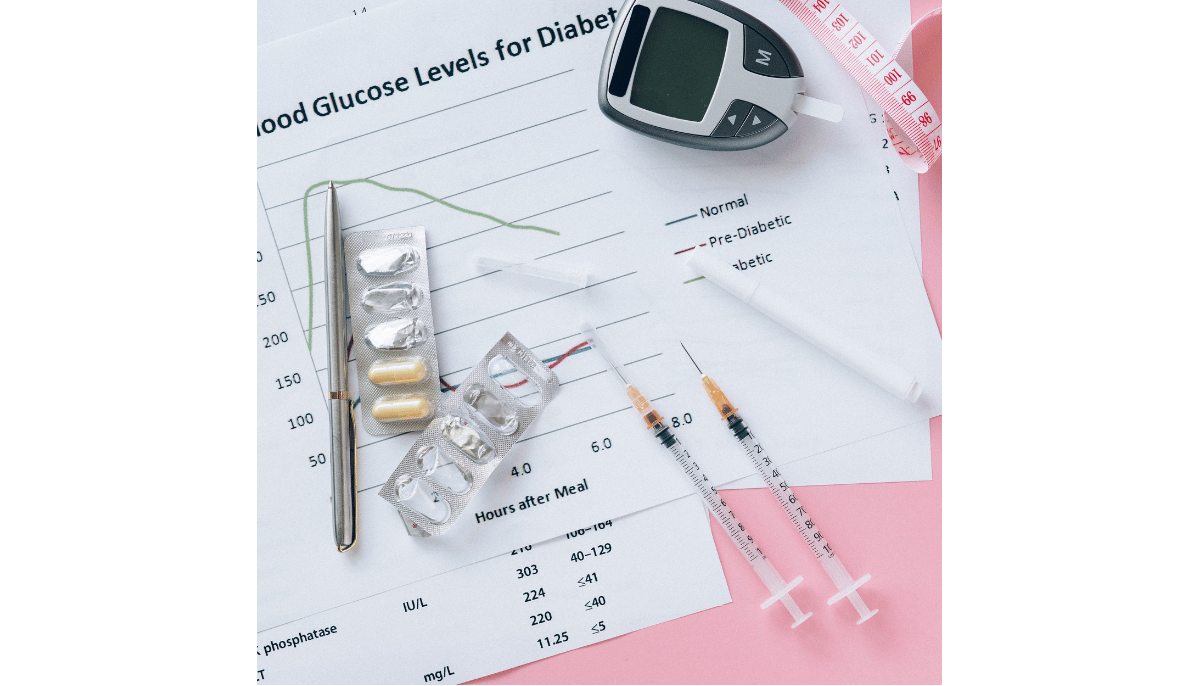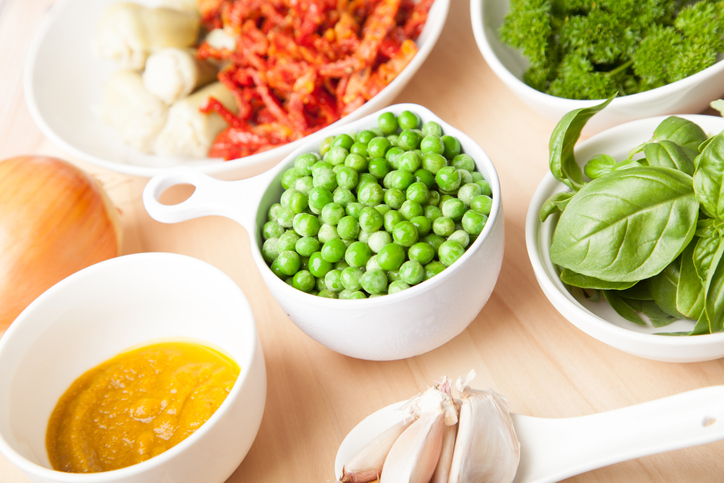The Ultimate Guide to a Plant-Based Diet for Type 2 Diabetes

This is the ultimate guide to a plant-based diet for type 2 diabetes.
A plant-based diet has gained popularity recently. Even in South Africa, due to its many health benefits.
One specific group that can enjoy a plant-based diet is individuals with type 2 diabetes.
A plant-based diet abundant in whole grains, fruits, vegetables, legumes, and nuts. It is healthy and delicious.
Further, many studies show that a plant-based diet can reduce blood sugar levels and boost health.
The guide provides a detailed overview of how a plant-based diet facilitates the management of Type 2 diabetes and optimises health.
What is Type 2 Diabetes?

It is critical to understand what Type 2 Diabetes is.
The most common varieties of diabetes are Type 2 Diabetes.
Then, there is Type 1 Diabetes and Gestational Diabetes (diabetes during pregnancy).
Type 2 Diabetes is non-insulin-dependent. The pancreas produces insulin even in people with Type 2 diabetes, but it is sometimes secreted only when the body requires it.
Type 2 diabetics are insulin resistant. Hence, they tend to have high circulating insulin levels.
Type 2 diabetes develops when the body does not use insulin efficiently. The body then loses the potency to make adequate insulin.
The hormone insulin guards the amount of glucose in the blood. It helps the glucose produced by the digestion of carbohydrates move from the blood into the body’s cells for energy.
Type 2 Diabetes in South Africa
Studies in South Africa show that Type 2 Diabetes increased by approximately 60 per cent. The increase occurred between 1990 and 2008/2009.
National diabetes mortality increased by 29 per cent between 1997 and 2012.
In her master’s thesis, Carmen Pheiffer stated that diabetes accounted for approximately 8,000 new cases of blindness. This adds 2,000 new possibilities of amputees annually in South Africa.
My eldest brother, Lloy, became a victim of Type 2 Diabetes in 2017. The healthcare providers amputated him, resulting in his passing away that same year.
The Journal of Geriatric Cardiology states that there is a high prevalence of Type 2 diabetes in South Africa.
The Citizen newspaper reported that the country registered an estimated 96,000 diabetic deaths in 2003.
South Africans must consider eating whole food plant-based diets seriously to reverse the scourge of Type 2 Diabetes.
What is a Plant-Based Diet?

A plant-based diet is to be defined herein terms of its effect on Type 2 Diabetes.
Whole foods are not processed but whole. All these elements protect against acquiring type 2 diabetes.
Whole grains and brown rice reduce the risk of developing diabetes.
Some fruits and vegetables lower diabetes rates.
Legumes have also improved insulin resistance. Eating legumes protects against metabolic syndrome; greater nut consumption lowers diabetes risk.
Cereal fibre appears to be especially protective against type 2 diabetes.
Diets based on whole plant foods maximise protective foods, excluding essential animal-based foods, which tend to promote insulin resistance, mainly processed and unprocessed red meat.
The Benefits of a Plant-Based Diet for Type 2 Diabetes
Neal Barnard and his team performed the first major randomised clinical trial on diabetic patients. They treated these patients purely with a plant-based (vegan) diet. They compared it to a conventional diet based on the 2003 American Diabetes Association (ADA) guidelines.
Ninety-nine individuals, ages 27–82 years, were randomised to counselling on a low-fat vegan or ADA diet and followed for 22 weeks.
The recommended vegan diet comprises approximately 10% energy from fat, 15% from protein, and 75% from carbohydrates. It also includes vegetables, fruits, grains, and legumes.
Participants in the vegan group avoided animal-added fats. And favoured low-glycemic index foods, such as beans and green vegetables.
Improved Blood Sugar Control
Changing dietary patterns is critical for persons with diabetes and impacts health benefits.
Blood sugar, which comes from food, is what the body uses as an energy source.
The body of people with diabetes does not correctly handle blood sugar.
Diabetes management involves managing blood sugar levels within a safe range by balancing food intake, activity, and lifestyle.
A plant-based diet plays a crucial role in managing diabetes. It controls the type and amount of blood sugar and carbohydrates entering the body.
Studies prove that controlling carbohydrate portions is critical.
Studies also recommend adding complex carbohydrates and consuming soluble fibre. Pairing carbohydrates with protein is a technique to control blood sugar levels well.
Weight Management
Obesity tends to increase the risk of cardiovascular disease and Type 2 diabetes.
An article by Sabate and Wien’s epidemiological studies on “Vegetarian Diets and Childhood Obesity Prevention” in the American Journal of Clinical Nutrition (2010) indicates that a vegetarian diet lowers BMI.
This diet further reduces the prevalence of obesity in adults and children.
In their article “Plant-Based Diets in the Reduction of Body Fat: Physiological Effects and Biochemical Insights,” Rammi S. Najjar and Rafaela G. Feresin indicate that interventional trials have demonstrated that plant-based diets reduce body fat in obese people.
A plant-based diet has high-carbohydrate and low-fat content and is often associated with weight loss.
Finally, plant-based diets promote weight loss and lower adiposity, which are highly protective against insulin resistance. On the other hand, meat consumption (including poultry) is highly predictive of obesity and weight gain over time. Hence, it is detrimental to those with Type 2 Diabetes.
Reduced Risk of Cardiovascular Disease
Research shows cardiovascular disease is the primary cause of premature deaths in the diabetic population.
Many trials have demonstrated the benefits of plant-based diets in preventing and treating cardiovascular disease.
Dr. Caldwell Esselstyn and his colleagues examined the effects of dietary changes on their participants, excluding other lifestyle interventions.
The participants were patients with diagnosed cardiovascular conditions.
The authors explained that in 11 patients with severe coronary artery disease who ate a low-fat plant-based diet, 8 (73%) had regression of coronary artery disease.
This regression repeats angiograms after five years on the diet.
In a subsequent review, researchers reported the outcome on 198 other patients with cardiovascular disease who voluntarily came to the Esselstyn program.
89% adhered to the diet, consuming a whole-food, plant-based diet without any meat, including poultry and fish, dairy, eggs, or added oils.
Lowered Blood Pressure
Extensive research shows that a plant-based diet impacts diabetes and prevents dangerous complications like heart disease.
There is ample evidence that plant-based diets can significantly improve blood sugar in people with diabetes.
Plant-based diets can also impact people with diabetes by lowering cholesterol and blood pressure.
Focusing on quality protein sources, carbohydrates, and fats is essential. Plant-based foods also have ample nutrients and fibre for optimum health.
Increased Insulin Sensitivity
Insulin’s purpose is to control blood sugar levels. When a person is insulin resistant, the pancreas produces more insulin to remove unwanted sugar in the blood.
Insulin sensitivity indicates how sensitive the body is to the effects of insulin.
An insulin-sensitive person requires smaller amounts of insulin to lower blood glucose levels than someone with low sensitivity.
Eating plant-based meals can improve insulin sensitivity and reduce insulin resistance, which can help combat many diseases, including Type 2 diabetes.
Studies contend that a diet rich in plant compounds helps higher insulin sensitivity.
Fruits and vegetables in a plant-based diet are rich in antioxidants. These antioxidants attack and neutralise free radicals that cause inflammation in the body.
Getting Started With a Plant-Based Diet for Type 2 Diabetes
It is critical to embark on your journey towards a plant-based diet. You can do this by progressively transitioning to plant-based foods.
It would help if you opted for various fruits and vegetables, including whole grains and legumes, and delved into plant-based protein sources and healthy fats.
Gradual Transitioning to a Plant-Based Diet
We all know the saying: Rome was not built in a day.
Likewise, there will be potholes on the road when transitioning to a plant-based diet.
When transitioning to a plant-based diet, you do not need to undergo costly diet programs or learn how to cook complicated meals.
I started a plant-based lifestyle by eating everything I usually eat except meat, dairy, and other processed foods.
It is essential to look at the nutritional labels on the processed foods you eat.
Incorporating a Variety of Plant-Based Foods

Dietary choices are crucial to insulin resistance, especially in an ageing, more sedentary population.
The ageing consume increasing amounts of calorie-dense foods, including highly processed meats, fast foods, and sugar-sweetened beverages. These foods play a critical role in the rising rates of type 2 diabetes worldwide.
Lifestyle changes, particularly diet, can effectively prevent, treat, and reverse type 2 diabetes.
Eat plant-based foods, emphasising legumes, whole grains, vegetables, fruits, nuts, and seeds. Avoid most or all animal products.
As indicated above, a whole-food, plant-based eating pattern includes whole foods that are not processed and high in fibre.
All these elements are protective against diabetes. Whole grains, including whole-grain bread, whole-grain cereals, and brown rice, have been associated with a reduced risk of developing diabetes.
Specific fruits and vegetables, including root vegetables, green leafy vegetables, blueberries, grapes, and apples, have been linked to lower diabetes rates.
Legumes also ameliorate insulin resistance and protect against metabolic syndrome.
Further, greater nut consumption can lower diabetes risk. Cereal fibre appears to be especially protective against type 2 diabetes.
Plant-Based Protein Sources
Whenever someone avoids eating meat and refrains from dairy products, there is always a concern about where to get proteins.
However, available plant-based protein is an abundant source from which you can choose.
These include lentils, chickpeas, beans, peas, quinoa, and soy products. Adding nuts, seeds, and seitan will provide enough protein.
Plant protein sources benefit from being naturally low-fat (e.g., most legumes). In addition, they supply fibre and many beneficial phytonutrients. Fibre is lacking when you eat animal foods. Unfortunately, this is the average diet in developed countries like South Africa.
Healthy Fats in a Plant-Based Diet
Saturated and trans fats have an impact on increasing the risk of developing diabetes.
Moreover, in diabetic patients, saturated fats are associated with increased mortality when they replace carbohydrates.
Consuming polyunsaturated fats, such as those in a plant-based diet, improves insulin secretion. Monounsaturated and polyunsaturated fats in a plant-based diet have the most favourable effect on glycemic levels, insulin resistance, and secretion.
Therefore, people with type 2 diabetes must consume vegetable fats (e.g., nuts, avocados, olives) instead of animal fats and refined grains.
Meal Planning and Recipes
You must choose foods that inhibit spikes in your blood sugar level, such as low carbohydrates.
These food groups comprise proteins, natural fats, full-fat dairy products, most vegetables, berries, nuts, and seeds.
A meal plan will facilitate your health journey and help you manage your blood sugar.
Contact your nearest dietitian through the Association of Dietetics in South Africa for advice on your diet.
Sample Meal Plans and Recipes for Type 2 Diabetes
Nutrition is vital in your meal plan because there is a strong connection between food choices and blood sugar response.
What you eat does not impact the development of diabetes. Diabetes affects how your body uses glucose, a critical energy source from food.
Most diabetic meal plans aim to control the carbohydrates consumed at each meal and snack according to their glycemic index.
Carbohydrates come from many foods, including grains, fruits, and starchy vegetables. Foods with added sugar are also a source of carbohydrates.
A Variety for Breakfast, Lunch, and Dinner (7 Days)
Breakfast
Muesli & Fruit
Whole Wheat Seed Loaf + Peanut Butter
Brown Bread + Scrambled Tofu
Granola Muesli
Whole Wheat Seed Loaf + Cucumber
Brown Bread + Banana Breakfast Drink
Oats + Fruits
Snack
Variety of nuts
Dry roasted unsalted Almonds
Apple or Banana
Carrots & Hummus
Pears
Roasted Chickpeas
Avocados
Lunch
Provita + Green Salad
Green Salad with Chickpeas
Pasta, Lentils + Fruit
Vegan Kale Caesar Salad with Tofu Croutons
Quinoa Black Bean Salad
Savoury Brown Rice
Roasted Vegetable Soup
Snack
Carrots & Apple
Walnuts
Carrots & Apple
Edamame
Greek Yoghurt with Berries
Nuts and Seeds
Apple slices with Almond Butter
Dinner
Roasted Chickpea Curry Bowl + Mixed Greens
Pasta and Green Vegetables
Greek Vegetarian Stuffed Zucchini
Thick Vegetable Curry
Veggie Nut Casserole
Vegetarian Casserole
Garlic Black Mushrooms
Snack
Almonds, Apple,s & Peanut Butter
Apple
Fruits
Celery sticks with Peanut Butter
Carrots & Apple
Frozen mango Chunks
Fresh Grapes
Managing Nutritional Needs
Managing nutritional needs for type 2 diabetes mellitus is vital for maintaining a healthy lifestyle.
You must have a healthy eating plan that helps control blood sugar to maintain a healthy lifestyle.
It requires the consumption of healthy plant-based meals regularly.
Pay special attention to healthy carbohydrates such as fruits, vegetables, low-fat products, legumes, and whole grains.
You must include non-starchy vegetables such as kale, broccoli, green beans, and spinach.
Ensuring Adequate Protection Intake
Plant protein sources have the benefit of being genuinely low-fat in many cases, as in most legumes.
In addition, they supply fibre and many beneficial phytonutrients, all of which are lacking in animal foods.
Plant-based protein sources are a great way to ensure adequate protein intake for people with type 2 diabetes.
Evidence shows that increasing plant protein intake reduces the risk of Type 2 diabetes. Plant-based protein in legumes such as peas, lentils, beans, chickpeas, and peanuts helps protect your heart health and regulate blood sugar.
Eating plant-based proteins is best for optimum health and for controlling and reversing type 2 diabetes.
Meeting Vitamin and Mineral Requirements
People with type 2 diabetes have unique nutritional needs. They need to pay attention to their intake of carbohydrates, protein, and fat.
They also need to make sure they get enough vitamins and minerals.
Some people with diabetes may be deficient in vitamin B1. The correct levels of thiamine is essential because it is vital to many body systems.
Asparagus, black beans, edamame, fortified cereals and whole-grain products, lentils, and macadamia nuts are sources of thiamine (vitamin B1).
A deficiency of vitamin B12 is a cause for concern for some people with type 2 diabetes. Food sources of vitamin B12 are nutritional yeasts, and you can use B12 supplements.
People who live with type 2 diabetes have low levels of magnesium.
To satisfy their nutritional needs, soy milk and spinach must include bananas, black beans, edamame, fortified cereals, nuts (such as almonds, cashews, and peanuts), pumpkin, or chia seeds.
Monitoring Carbohydrate Intake
Dietitians, Nutritionists, and other health professionals in South Africa have increased their interest in the effects of various carbohydrates on blood sugar levels and the glycemic index (GI) of different carbohydrate-containing foods.
Carbohydrate-rich foods tend to be absorbed more slowly. They also have a low GI value, which ensures the gradual release of glucose into the bloodstream. This results in a reduced insulin reaction and more uniform blood sugar control.
Monitoring carbohydrate intake is an integral part of managing type 2 diabetes.
You must track your food intake and blood sugar levels if you have diabetes.
Importance of Fibre in a Plant-Based Diet
Fibre is vital in managing type 2 diabetes by promoting healthy blood sugar levels.
Getting enough fibre may also lower the risk of other chronic conditions, including heart disease. Plant-based foods contain abundant fibre
Fibre, particularly soluble fibre, slows the absorption of sugar in people with diabetes, helping to improve blood sugar levels.
Therefore, a healthy plant-based diet that includes fibre minimises the risk of Type 2 diabetes development.
Overcoming Challenges and Roadblocks
Eating plant-based foods can be beneficial for the primary prevention of type 2 diabetes.
Some processed plant-based foods are only sometimes the best option. Fresh vegetables are a good choice. The key benefit of a plant-based diet in preventing type 2 diabetes is the impact of non-plant-based foods on blood sugar levels and insulin resistance.
Here are some tips to help you overcome challenges and roadblocks when eating plant-based foods with type 2 diabetes.
- When dining out with type 2 diabetes, choosing nutritious dishes is essential. Choose healthy dishes lower in carbs and calories, and eat them around the same time each day to keep your blood sugar steady.
- Use alternative plant-based foods such as eggs, meat, and dairy for your favourite foods. There are many alternatives to animal products and dairy. Some common ones include milk substitutes, vegan cheese, and plant-based yoghurt substitutes made from soy, coconut, almond and other nuts.
- To stay committed and motivated to a plant-based lifestyle, you need inspiration from others.
Watching plant-based transformation stories on YouTube and the Forks Over Knives website will boost your commitment. Celebrate your successes.
Conclusion
A plant-based diet can be vital in managing and controlling Type 2 diabetes and improving overall health.
It is advisable to consult with a dietitian or doctor before changing your diet.

1 thought on “The Ultimate Guide to a Plant-Based Diet for Type 2 Diabetes”